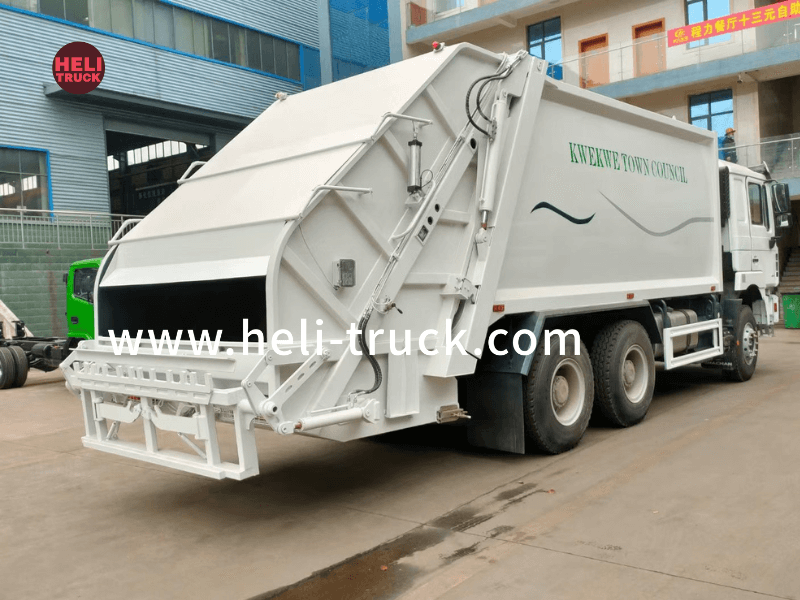Introduction
Garbage compactor trucks play a vital role in waste management systems by efficiently collecting and compacting solid waste for disposal. These trucks are essential in maintaining clean and sustainable urban environments. However, the cost of operating garbage compactor trucks can be a significant concern for municipalities and waste management companies. In this comprehensive guide, we will explore the features and technologies that can help minimize operating costs and maximize efficiency for garbage compactor trucks.
1. Understanding Garbage Compactor Trucks
Garbage compactor trucks are specialized vehicles designed to collect, compact, and transport solid waste. These trucks come in various sizes and configurations, including rear-loading, front-loading, and side-loading models. Some trucks are equipped with hydraulic compactors that compress the waste to maximize capacity and reduce the number of trips required for disposal.
2. Factors Affecting Operating Costs
Several factors contribute to the operating costs of garbage compactor trucks, including fuel consumption, maintenance expenses, labor costs, and disposal fees. To minimize operating costs, it is essential to consider the following factors:
- Fuel Efficiency: Choosing a garbage compactor truck with a fuel-efficient engine can significantly reduce fuel consumption and overall operating costs.
- Maintenance Costs: Regular maintenance and timely repairs are essential to keep garbage compactor trucks in optimal condition and prevent costly breakdowns.
- Labor Efficiency: Proper training and efficient route planning can help maximize the productivity of the truck's crew and reduce labor costs.
- Disposal Fees: Minimizing the number of trips required for waste disposal through efficient compaction can help reduce disposal fees and overall operating costs.
3. Features of Garbage Compactor Trucks with Low Operating Costs
To achieve low operating costs, garbage compactor trucks are equipped with various features and technologies designed to enhance efficiency and reduce expenses. Some of the key features of garbage compactor trucks with low operating costs include:
- Lightweight Design: Lightweight materials and construction help reduce fuel consumption and increase payload capacity, allowing for more efficient waste collection and disposal.
- Advanced Compaction Systems: High-performance hydraulic compactors can efficiently compress solid waste, maximizing the truck's capacity and reducing the number of trips required for disposal.
- Telematics and GPS Tracking: Integrated telematics systems and GPS tracking technology can help optimize route planning, minimize idle time, and improve fuel efficiency.

- Eco-Friendly Engines: Garbage compactor trucks with eco-friendly engines that comply with emission standards can reduce environmental impact and operating costs.
- Automated Controls: Automated controls and monitoring systems can help improve operational efficiency, reduce human error, and prevent unnecessary wear and tear on the truck.
4. Best Practices for Minimizing Operating Costs
In addition to selecting a garbage compactor truck with low operating costs, implementing best practices can further help minimize expenses and maximize efficiency. Some best practices for minimizing operating costs include:
- Regular Maintenance: Establishing a proactive maintenance schedule and conducting regular inspections can help prevent costly repairs and extend the lifespan of the truck.
- Driver Training: Providing comprehensive training to the truck's crew on proper operation techniques, safety protocols, and fuel-efficient driving practices can help reduce fuel consumption and maintenance costs.
- https://www.heli-truck.com/729/ Planning: Utilizing route optimization software and GPS tracking technology can help identify the most efficient collection routes, minimize travel time, and reduce fuel consumption.
- Waste Segregation: Encouraging waste segregation at the source can help reduce the volume of waste collected, increase recycling rates, and lower disposal fees.
- Monitoring and Reporting: Implementing monitoring systems to track fuel consumption, maintenance costs, and operational efficiency can help identify areas for improvement and optimize performance.
Conclusion
Garbage compactor trucks with low operating costs are essential for sustainable waste management practices. By selecting trucks with fuel-efficient engines, advanced compaction systems, and eco-friendly features, municipalities and waste management companies can minimize expenses and maximize efficiency. Implementing best practices such as regular maintenance, driver training, efficient route planning, waste segregation, and monitoring and reporting can further help reduce operating costs and ensure the effective operation of garbage compactor trucks. By prioritizing cost-effective solutions and adopting sustainable practices, organizations can achieve a balance between economic efficiency and environmental responsibility in waste management.
